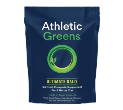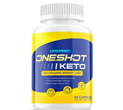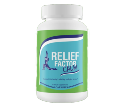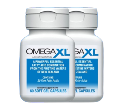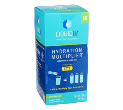Prosvent Reviews, Ingredients, Does It Work?
Edited and medically reviewed by ✔️ Team of BestInSupplements | Written by Katelyn Johnson (B.S. and M.S. in Nutrition Science)
Amazing Supplement for Men who need to care for their prostate health and function. BPH is a common disorder and Prosvent can help you to prevent it or to feel better if you already have it. From our review you will learn more about how safe, effective, and beneficial this product is and what its ingredients are.

Prosvent is a dietary supplement manufactured by Thera Botanics that helps maintain optimal prostate function and health. Their formula contains beneficial nutrients that aim to minimize the effects of an enlarged prostate, also referred to as BPH1.
BPH, or benign prostatic hyperplasia, is a common disorder characterized by an enlarged prostate. Signs of an enlarged prostate include frequent and urgent urination, weak flow, failure to completely empty the bladder, and sleep disturbances are all signs of an enlarged prostate1.
According to studies, BPH affects 50% of males aged between 51 and 60 and 90% of males over the age of 801.
This review is a part of: The Best Prostate Supplements To Buy
Prosvent is a health and wellness supplement that supports prostate health and is intended to assist men suffering from enlarged or hyperactive prostates. It enhances bladder management, flow strength, and total bladder emptying.
This will yield a variety of other advantages, including improved sleep patterns and sexual performance, as well as avoiding the humiliation of leaking and excessive toilet breaks. This product might be a good alternative for those who prefer to avoid prescription prostate drugs, along with individuals who wish to avoid developing prostate problems later in life.
Here You Will Discover More About:
Prosvent Benefits
Prosvent is a prostate health supplement made with natural compounds such as vitamins and nutrients, as well as effective herbal components. This supplement aims to decrease urine frequency and urgency triggered by benign prostate hyperplasia2.
This prostate health supplement blends natural herbal compounds that decrease inflammation in the body. The ingredients are shown to promote a healthy stream and full bladder emptying, which in turn will improve the quality of sleep and life2.
Prosvent also incorporates vital components such as zinc and vitamin D, which can assist men's overall health. These substances, for example, may aid with baldness and erectile dysfunction.
All of the components in Prosvent have been studied extensively, and both beta-sitosterol and nettle have been found to alleviate symptoms including frequency and urgency after 30 days in double-blind, placebo-controlled tests3.
Prosvent Ingredients
Beta-sitosterol and stinging nettle root, pumpkin seed oil, vitamin D, and zinc are among the top ingredients in Prosvent. These compounds are natural and well-studied, with clinical data supporting their effectiveness in treating prostate issues.

Beta-Sitosterol
Beta-Sitosterol is a safe and natural cholesterol-like plant-based lipid found in many prostate supplements. It is used as a remedy to address health conditions such as excessive cholesterol, and symptoms of benign prostatic hyperplasia (BPH), while also decreasing the risk of certain cancers4.
Beta-sitosterol has anti-inflammatory properties, which aids in treating prostatic hyperplasia as it decreases the size of the prostate. Beta-sitosterol has been demonstrated in numerous trials to be beneficial in the treatment of prostate symptoms. Those who took beta-sitosterol had a higher urine flow rate than men who received a placebo4.
Although the majority of studies that researched the prostate-related therapeutic effects of sterols were conducted a few decades ago, recent investigations have concluded that they are a very effective BPHtreatment4.
Nettle Root
The stinging nettle plant root is known to carry anti-inflammatory capabilities. As an anti-inflammatory, nettle root has also been shown to alleviate the painful symptoms associated with BPH when coupled with other herbal compounds.
A research study found that elderly patients given 120 mg of nettle root on a daily basis had experienced a boost in urine flow and bladder emptying5. Furthermore, an increased dose of nettle root at 300 mg twice daily was shown to exert an even greater efficacy in alleviating BPH side effects3.
Pygeum Africanum
Pygeum Africanum, sourced from an African plum tree, has been shown in clinical trials to effectively decrease the urinary frequency and night-time incidences often attributed to BPH6. It was also demonstrated to inhibit prostate cell production, which may delay or eliminate the onset of BPH7.
Pumpkin Seed Oil
Pumpkin seed oil is claimed to promote urinary tract and heart health8. Research indicates that pumpkin seed oil and saw palmetto work together to alleviate symptoms associated with an enlarged prostate. It was demonstrated that the combination of pumpkin seed oil and saw palmetto safely and effectively treated BPH8.
Saw Palmetto
Saw palmetto’s therapeutic effects have been extensively researched as a remedy for BPH. Due to its outstanding record of safety and consistent clinical results, a recent study suggested saw palmetto as a primary treatment option for BPH sufferers9.
Lycopene
Lycopene is a naturally occurring compound found in plant sources like tomatoes, watermelon, apricots, and grapefruits. Due to its potent antioxidant concentration, research findings indicate Lycopene alleviates symptoms of BPH and lowers the incidence of prostate cancer10.
Vitamin D
Vitamin D is an essential mineral for bone health, muscle and neuron function, and a healthy immune system. Research observations demonstrate a correlation between vitamin D deficiency and prostate inflammation11. Daily vitamin D supplementation at 6000 IU was found to reduce the occurrence of an enlarged prostate12.
Take a look at this alternative to optimize your health: Nature Made B12 Review
Zinc
Zinc is an essential nutrient that aids wound healing, and supports healthy immune system function, while also supporting the production of proteins. Moreover, zinc significantly contributes to the development and proper function of the prostate13.
Recent investigations state men with zinc deficiencies pose a greater risk of developing BPH, which is also supported by past research. Scientists revealed that when compared to normal prostate tissue, tissue taken from men with prostate cancer or BPH had significantly lower concentrations of zinc13.
Prosvent Safety and Side Effects
The ingredients in Prosvent’s formula are considered safe for healthy individuals. If any side effects are experienced while taking this supplement, they are very rare and mild.
Take a look at this supplement for optimal prostate health: Serovital Review
Prosvent's sterols may trigger digestive discomforts such as diarrhea, nausea, and indigestion. Just like any other supplement, it’s recommended you contact your primary care health professional prior to use in order to confirm safety.
Who Should Buy Prosvent?
Prosvent is an ideal solution for men who want to manage their BPH symptoms without the need to undergo surgery or take prescription medications.
Prosvent Reviews and Final Thoughts
Hundreds of reviewers claim that Prosvent is the strongest and most effective prostate health supplement among the many that have been tried. Customers reported this remedy helped them sleep better at night by reducing nighttime urination and urgency, according to positive reviews.
Prosvent is a fairly affordable and safe alternative when compared to other pharmaceutical BPH treatments that can cost anywhere between $75- $120 for a monthly supply. Seeing as research supports several of the compounds used to create Prosvent, the supplement’s value is fair and worth considering for anyone suffering from BPH symptoms.
Where to Buy Prosvent
Prosvent can be ordered straight from the company's website or through Amazon.
When ordered from the manufacturer’s website, Prosvent is offered with a 30-day free trial. However, they do require payment of $9.95 for shipping fees.
Following the one-month trial, an active account will be charged a monthly fee of $39.95 for one bottle and $9.95 for shipping.
Prosvent is also available to purchase on Amazon, however, it costs $57.00 for a one-month supply.
Frequently Asked Questions
References
- Parsons, J. K. (2010). Benign prostatic hyperplasia and male lower urinary tract symptoms: epidemiology and risk factors. Current bladder dysfunction reports, 5(4), 212-218.
- Kim, T. H., Lim, H. J., Kim, M. S., & Lee, M. S. (2012). Dietary supplements for benign prostatic hyperplasia: an overview of systematic reviews. Maturitas, 73(3), 180–185. https://doi.org/10.1016/j.maturitas.2012.07.007
- Ghorbanibirgani, A., Khalili, A., & Zamani, L. (2013). The efficacy of stinging nettle (Urtica dioica) in patients with benign prostatic hyperplasia: a randomized double-blind study in 100 patients. Iranian Red Crescent Medical Journal, 15(1), 9.
- Berges, R. R., Windeler, J., Trampisch, H. J., Senge, T. H., & β-Sitosterol Study Group. (1995). Randomised, placebo-controlled, double-blind clinical trial of β-sitosterol in patients with benign prostatic hyperplasia. The Lancet, 345(8964), 1529-1532.
- Lopatkin, N., Sivkov, A., Schläfke, S., Funk, P., Medvedev, A., & Engelmann, U. (2007). Efficacy and safety of a combination of Sabal and Urtica extract in lower urinary tract symptoms--long-term follow-up of a placebo-controlled, double-blind, multicenter trial. International urology and nephrology, 39(4), 1137–1146. https://doi.org/10.1007/s11255-006-9173-7
- Ishani, A., MacDonald, R., Nelson, D., Rutks, I., & Wilt, T. J. (2000). Pygeum africanum for the treatment of patients with benign prostatic hyperplasia: a systematic review and quantitative meta-analysis. The American journal of medicine, 109(8), 654–664. https://doi.org/10.1016/s0002-9343(00)00604-5
- Larré, S., Camparo, P., Comperat, E., Boulbés, D., Haddoum, M., Baulande, S., ... & Cussenot, O. (2012). Biological effect of human serum collected before and after oral intake of Pygeum africanum on various benign prostate cell cultures. Asian journal of andrology, 14(3), 499.
- Hong, H., Kim, C. S., & Maeng, S. (2009). Effects of pumpkin seed oil and saw palmetto oil in Korean men with symptomatic benign prostatic hyperplasia. Nutrition research and practice, 3(4), 323-327.
- Vela-Navarrete, R., Alcaraz, A., Rodríguez-Antolín, A., Miñana López, B., Fernández-Gómez, J. M., Angulo, J. C., Castro Díaz, D., Romero-Otero, J., Brenes, F. J., Carballido, J., Molero García, J. M., Fernández-Pro Ledesma, A., Cózar Olmos, J. M., Manasanch Dalmau, J., Subirana Cachinero, I., Herdman, M., & Ficarra, V. (2018). Efficacy and safety of a hexanic extract of Serenoa repens (Permixon® ) for the treatment of lower urinary tract symptoms associated with benign prostatic hyperplasia (LUTS/BPH): systematic review and meta-analysis of randomised controlled trials and observational studies. BJU international, 122(6), 1049–1065. https://doi.org/10.1111/bju.14362
- Chen, P., Zhang, W., Wang, X., Zhao, K., Negi, D. S., Zhuo, L., Qi, M., Wang, X., & Zhang, X. (2015). Lycopene and Risk of Prostate Cancer: A Systematic Review and Meta-Analysis. Medicine, 94(33), e1260. https://doi.org/10.1097/MD.0000000000001260
- Zhang, W., Zheng, X., Wang, Y., & Xiao, H. (2016). Vitamin D Deficiency as a Potential Marker of Benign Prostatic Hyperplasia. Urology, 97, 212–218. https://doi.org/10.1016/j.urology.2016.03.070
- Espinosa, G., Esposito, R., Kazzazi, A., & Djavan, B. (2013). Vitamin D and benign prostatic hyperplasia - a review. The Canadian journal of urology, 20(4), 6820–6825.
- Sauer, A. K., Vela, H., Vela, G., Stark, P., Barrera-Juarez, E., & Grabrucker, A. M. (2020). Zinc Deficiency in Men Over 50 and Its Implications in Prostate Disorders. Frontiers in Oncology, 10, 1293.
Every editorial product is independently selected, though we may be compensated or receive an affiliate commission if you buy something through our links.
Recently Purchased


